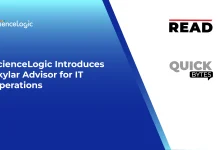Turing, the world’s leading Intelligent Talent Cloud, announced it has attained unicorn status after raising $87 million at a valuation of about $1.1 billion. The Series D financing was led by WestBridge Capital with participation from Foundation Capital, along with new investor StepStone Group.
Also Read: Invoca Named a Leader in Applied Conversation Intelligence by Independent Research Firm
WestBridge Capital is a $7 billion fund with deep expertise across SaaS and IT services and has invested in global IT services companies such as Cognizant Technology Solutions and Global Logic. Foundation Capital, with $4B under management, has invested in companies including Netflix, Uber, and Solana. StepStone Group is a $22 billion late-stage growth equity fund with investments in leading talent clouds such as WorkRise (RigUp) and Trusted Health.
Other investors in the round include AltaIR Capital, HR Tech Investments LLC (an affiliate of Indeed), Brainstorm Ventures, Frontier Ventures, Modern Venture Partners, and Plug and Play Scale Fund. The unicorn round brings Turing’s total raised capital to over $140 million. This round was heavily oversubscribed; Turing has since opened a SAFE at a $4 billion valuation cap which is now also oversubscribed.
Turing has grown its developer pool over 9x within the last 12 months after raising its Series B in December 2020, adding marquee customers Johnson & Johnson, Coinbase, Rivian, Dell, Disney, Plume, and VillageMD. With more than one million developers from 140 countries, Turing’s exponential growth has helped award the company the number one spot in the highly competitive B2B category for The Information’s 2021 50 Most Promising Startups list.
“Our mission is to unleash the world’s untapped human potential,” said Jonathan Siddharth, Founder & CEO of Turing. “We now live in a remote-first world, and every company is in a race to reap the benefits of global engineering talent. The future is remote distributed global teams.”
The reasons are obvious. Companies can access a planetary pool of engineers and access hundreds of thousands of untapped Silicon Valley caliber developers. The inspiration for Turing came to repeat entrepreneurs Jonathan Siddharth & Vijay Krishnan from their experience scaling their first startup Rover, which was also built remote-first and successfully acquired in 2017.
“Turing’s growth has been nothing short of phenomenal,” said Sumir Chadha, Managing Director of WestBridge Capital. “Over the past two decades, we have invested in and witnessed the creation of massive companies in offshore development across the globe. Turing is pioneering the new era of such companies with machine learning and automation at the core.”
However, remote is hard. Legacy solutions are simply not built for a remote-first world. A traditional hiring process takes months, and engineering leaders spend up to 40 percent of their time hiring. The typical options are IT services companies, staffing agencies, or recruiting marketplaces that manually source from local pools with no specialized vetting for engineers. This leads to long timelines for filling roles and renders companies incapable of attracting the best talent.




